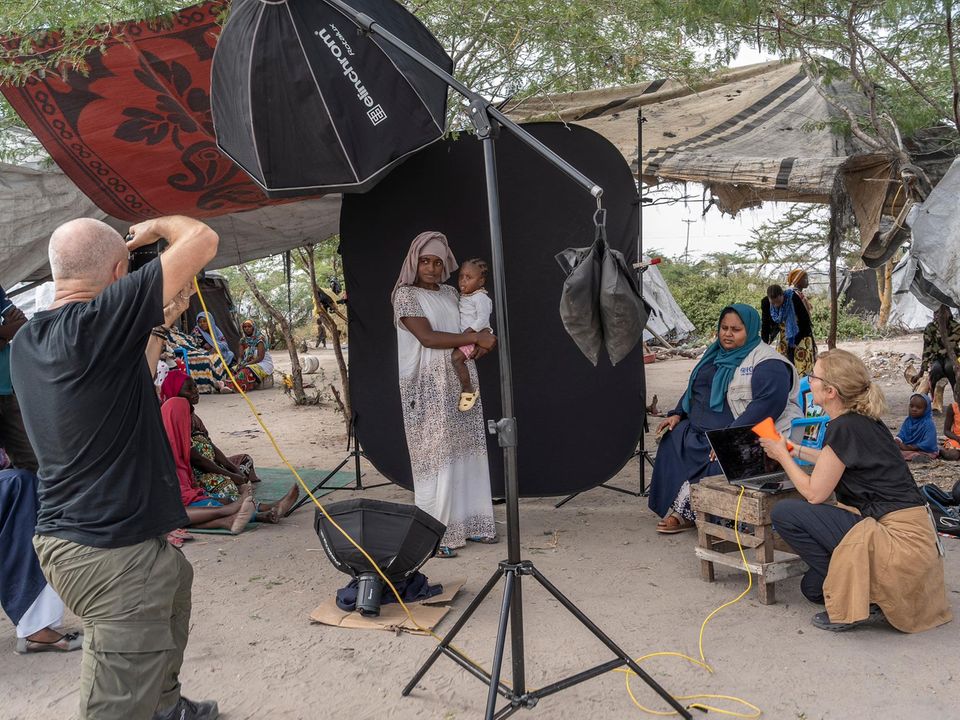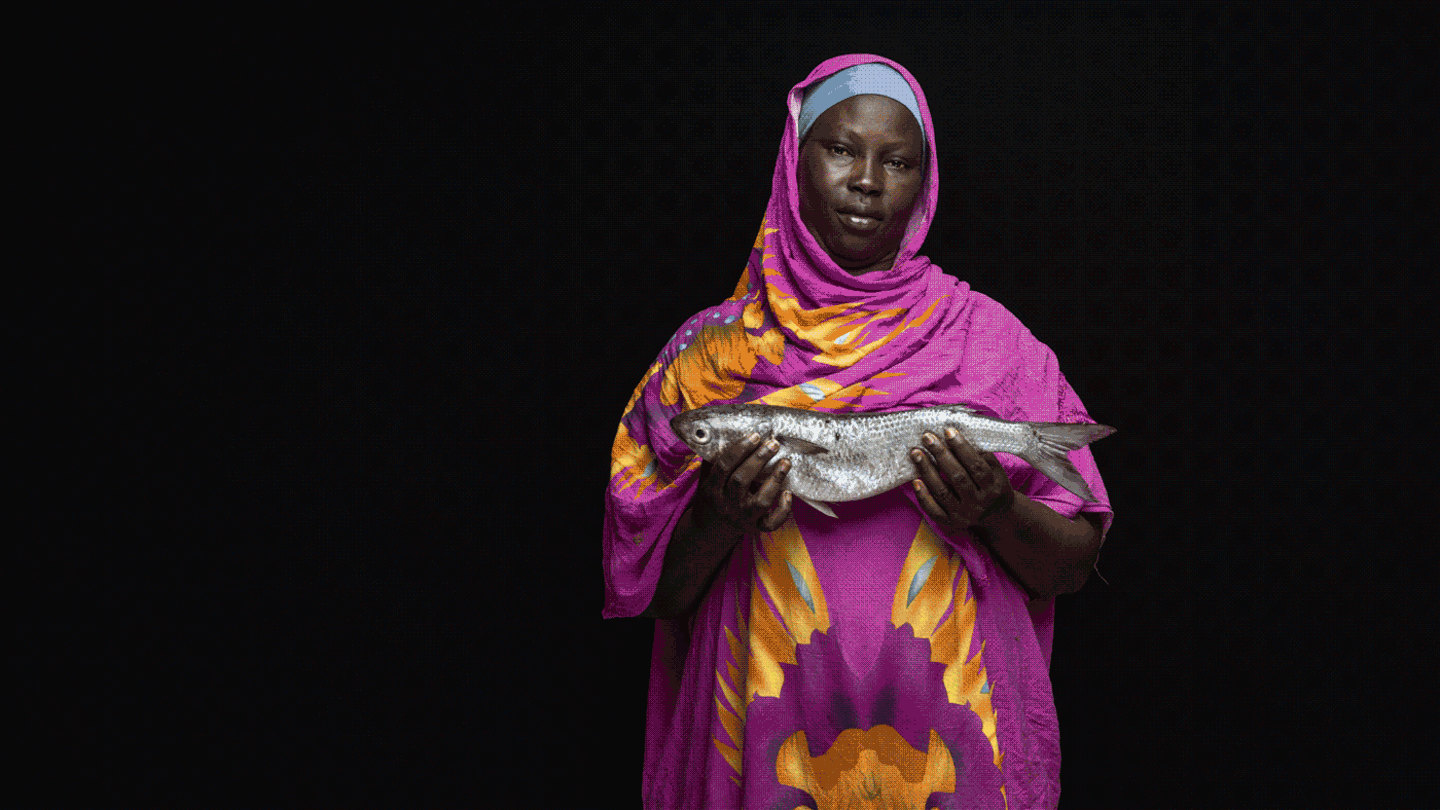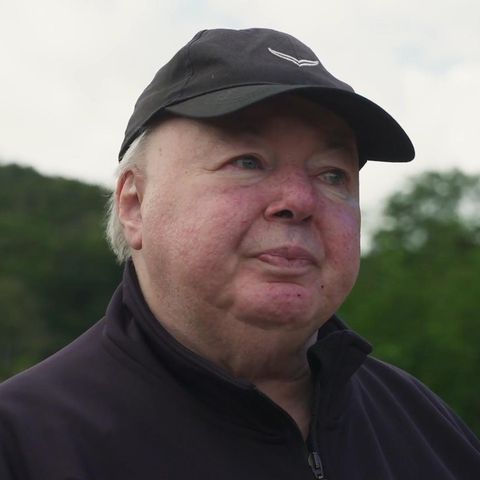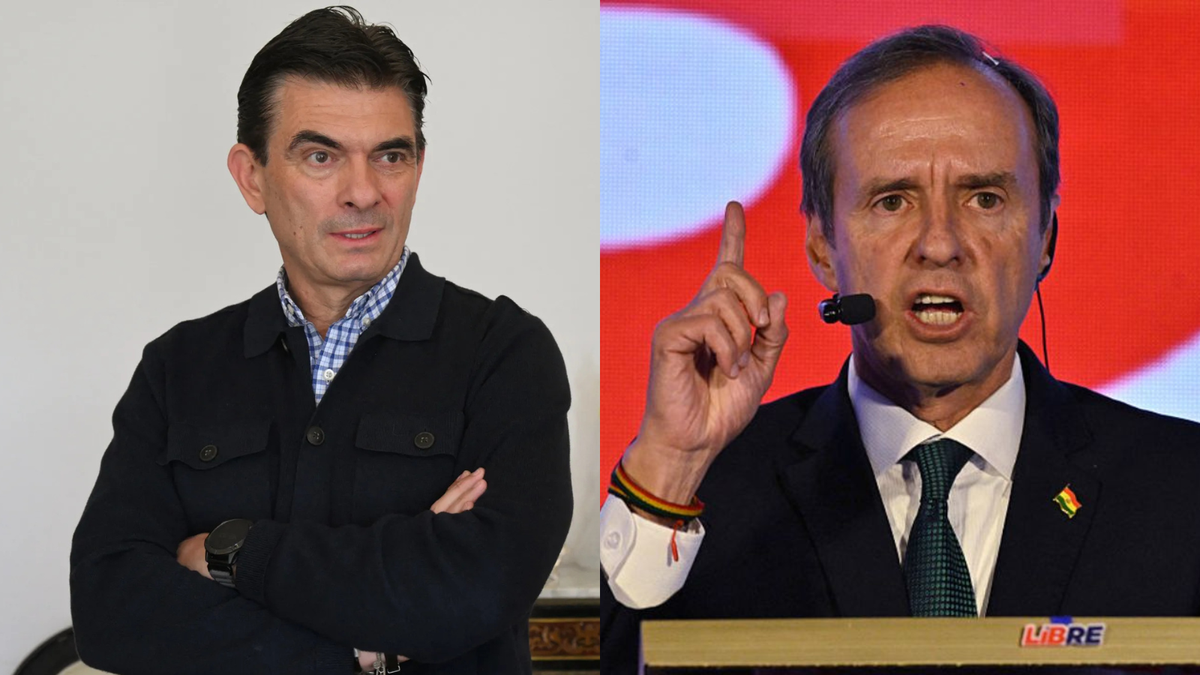Copy the current link
Add to watchlist
The raw numbers don’t speak a clear language, no matter which country they come from, no matter how precise they are.
What use is it to know that somewhere in the Swiss Alps on one day in August last year, around 100 millimeters of rain fell per square meter within just under an hour? Or what can you do with the fact that in the marshes of the Euphrates and Tigris in southern Iraq, 75 cubic meters of water evaporated per second at summer temperatures above 50 degrees – so that there are 75,000 liters less with every tremble of the second hand? What do you make of the information that the average temperature on the Mongolian plateau has increased twice as much as the global average over the past few decades?
These numbers seem worrying. But that doesn’t help.
You have to look into the faces of those affected
You can only really get close to the dramatic reality on our planet, which is warming ever faster, when you look into the faces of those who can report from their own experience what it means when droughts or coastal erosion, storms or fires uproot one’s own existence.
Every year around 20 million people around the world lose their homes and often their livelihoods because weather extremes make “business as usual” impossible. More and more often very close to us. The Swiss photographer couple Monika Fischer and Mathias Braschler traveled around the world for 18 months and shot in twelve countries on five continents, sometimes in the company of starsought out such people to document their stories.
And they have a lot to say to us.
These stories from the documentary “Displaced” show that the climate crisis has many facets. In one place it strikes overnight as a seemingly sudden catastrophe. Elsewhere, it gradually deprives people of what they need to live over months or years. It is rarely the new weather extremes alone that rob people of their homes. Mismanagement, conflicts, corruption: factors like these are often at play, especially in crisis-hit countries like Iraq. In many places, the climate crisis is exacerbating other grievances – to the point of becoming unbearable.
But what the pictures particularly show is that no matter which country, whether poor or wealthy – the climate crisis affects everyone. “We are causing climate change. But we are also becoming victims of climate change ourselves,” says Mathias Braschler. “He’s getting closer and closer.”
In some places, people are responding to climate change with foresight
In Switzerland, where the photographers live, stories like that of Bruno Lötscher from Brienz are no longer an isolated case. This summer, another landslide wiped out an entire village in the canton of Valais. There has long been a broad discussion as to whether some Alpine valleys should be permanently cleared – because frequent heavy rain and melting glaciers make human settlement there too dangerous.
In Brienz, years before the disaster, they had wisely built a sediment collector above the town: a huge collecting basin with walls made of meter-thick concrete. Capacity: 12,000 cubic meters. But when the masses of water drove rock and mud down into the valley on the August night of 2024, it was filled to capacity within minutes. Then another 50,000 cubic meters of rubble pushed unchecked into the village.
How many of us will it affect? Science cannot reliably predict this. The United Nations estimates that coastal erosion alone as a result of more frequent storms and rising sea levels, such as in Senegal and the Philippines, could leave 200 million people homeless by the middle of the century.
The people that the photographer couple Braschler/Fischer portrayed are harbingers of the world beyond 1.5 degrees of warming, towards which we are still heading almost unchecked.
War seems to be a bigger problem than the climate crisis
But don’t we have enough current, more pressing problems? War has been raging in Europe for almost four years, and in the Middle East for over two. “When there is war,” says former NATO Secretary General Jens Stoltenberg, “you can’t make any progress in the fight against climate change.”

How the report “The Homeless” came about
The Swiss photographers are building their mobile photo studio Monika Fischer and Mathias Braschler where the protagonists are. Sometimes in a Mongolian yurt, sometimes in a mud hut in Iraq or, as here, in the Kenyan bush. The neutral background is part of the concept. “We want to show that everyone is the same,” says Fischer. The “Displaced” documentary was supported by the UN World Food Program (WFP) and the International Organization for Migration (IOM). star-Author Steffen Gassel accompanied the research in Germany, Switzerland and Iraq. All photos, videos and texts of the exclusive star-Reports can be found on this special page.
The present seems to prove him right. In September 2019, before the pandemic and Putin’s invasion, when the world still seemed fine compared to today, the “Fridays for Future” movement brought 1.4 million people in Germany onto the streets to protest for the climate. In 575 locations. In a single day. They tried that again recently. Only 50,000 came.
And that’s not all. There’s a man in the White House who says things like this: “The fight against climate change is the biggest fraud ever committed in the world.” Fearing that it would lose the goodwill of the US as a protective power, the EU made a deal with him. Europe wants to buy fossil raw materials from the USA for 750 billion euros in the coming years. Probably also for the gas power plants that German Economics Minister Katharina Reiche is planning, while Chancellor Friedrich Merz is planning to ban combustion engines from 2035.
“Disturbing each other’s vacation flights doesn’t help.”
So is everything hopeless because there’s just nothing you can do? Despite all the warnings, is climate protection a losing proposition that we cannot afford?
No, says Friederike Otto, professor at London’s Imperial College and probably the most prominent German extreme weather researcher. Your message: We have to change our perspective. “Climate change,” she writes in her latest book, “is not a catastrophe that requires us to bury our heads in the sand, but rather an opportunity to change things together.” We mustn’t wallow in doomsday scenarios any longer, says Otto. Even dissuading each other from vacation flights doesn’t help. Rather than seeing climate change as a threat, it is about seeing it as an opportunity for a move towards more commonality. And to a new reflection on what that should actually be: prosperity and a good life.
For this to work, says Otto, we need different stories about climate change. Those that show the dangers, sure – but that also give courage instead of just fear. They show that for the vast majority of people, sensible measures would not mean any loss, but rather “higher quality of life, more health, more freedom, better houses, more butterflies and bees.”
Pessimists can now think: people only become wise through damage.
On the other hand: If these people, after everything they have endured, find courage and strength to create a world worth living in, what will we, those who have escaped so far, let stop us?
This content is part of the “The Homeless” project, which documents the consequences of climate change. All photos, videos and texts of the star-Reports can be found on this special page.
Photos and videos: Mathias Braschler, Monika Fischer
Texts: Steffen Gassel
Digital storytelling: Nils Ehrich, Patrick Rösing, Sebastian Jungbluth
Participation in photo production and research: USA – Jane Bittle, Sue Weber, Tasha Guidry, Ron Beiner; BRAZIL – Manoela Martins, Andre Leao, Isadora Carvalho, Ana Andria; GUATEMALA – Claudia Jo Rios (WFP), Alberto (WFP); ITALY – Luisa Brandl; SWITZERLAND – Manuel Marques Pereira (IOM), Cecilia Zerbini (IOM), Chloe Lavau (IOM), Cyril Kammer; PHILIPPINES – Mitzi Navarro (IOM), Alicia Follosco (IOM), Renmarc, Herlyn Orosca (WFP), Adelaida Escurel; KENYA – Sharif Faisal (IOM), Ali Khandija (IOM), Cynthia Meru (IOM), Madina Gwiye Said (Red Cross); BANGLADESH – Kun Li (WFP), Tasnim Tabassum (WFP); IRAQ – Saif Altatooz (WFP), Suhad Abdelrazzaq, Mohammed Almoumin; MONGOLIA – Munkhtuya Davaajav (IOM), Daniel Sam (IOM), Onon Nyamsuren (IOM); GERMANY – Lena von Zabern (WFP), Martin Frick (WFP), Martin Rentsch (WFP)
Source: Stern
I have been working in the news industry for over 6 years, first as a reporter and now as an editor. I have covered politics extensively, and my work has appeared in major newspapers and online news outlets around the world. In addition to my writing, I also contribute regularly to 24 Hours World.





